Psychodynamic Psychology - Certification Course
Learn more about Psychodynamic Theories in Psychology
4.20 (100 reviews)

1,270
students
3 hours
content
Apr 2020
last update
$39.99
regular price
What you will learn
Classical psychoanalysis. Ideas and views of Sigmund Freud.
Analytical psychology. Ideas and views of Carl Gustav Jung.
Individual psychology. Ideas and views of Alfred Adler.
Neo-Freudianism. Ideas and views of Erich Fromm and Karen Horney.
Stages of psychosocial development of personality - Erik Erikson.
Jean Piaget and Cognitive Development during Childhood.
Lawrence Kohlberg and the moral development of the personality.
Attachment theory. Basic concepts and styles of attachment.
A three-category model of early attachment. Mary Ainsworth..
А four-category model of adult attachment styles. Bartholomew and Horowitz.
Needs.
Motivation and personality.
Character.
Emotions and feelings.
Why take this course?
It seems you've provided a comprehensive overview of various topics within psychology, including anxiety, psychosocial development, cognitive development, moral development, attachment theory, motivation, character, needs, and emotions. This training program you described is extensive and covers key aspects of human behavior and psychology from different perspectives. Let's summarize each topic briefly:
1. **Anxiety and Basal Anxiety**: Anxiety can be physiological or psychic, with physiological anxiety being a natural response to threats and psychic anxiety being the psychological discomfort or worry about things. Basal anxiety is the minimum level of alertness that an organism needs to remain functional.
2. **Psychosocial Development**: Proposed by Erik Erikson, this theory suggests that human behavior is shaped by the interaction of biological and cultural factors. It outlines a series of psychosocultural stages from infancy to adulthood.
3. **Cognitive Development**: As studied by Jean Piaget, cognitive development refers to the changes in knowledge or information-processing capacity that occur as people grow and learn. Piaget's theory is broken down into four stages: sensorimotor, preoperational, concrete operational, and formal operational.
4. **Moral Development**: Lawrence Kohlberg expanded upon Piaget's stages of cognitive development by focusing on moral reasoning and how individuals develop their ethical decision-making. Kohlberg outlined three levels of moral development: preconventional, conventional, and postconventional.
5. **Attachment Theory**: Proposed by John Bowlby, attachment theory describes the biological and environmental factors influencing the formation of an affective social bond (attachment) between humans, particularly an infant and caregiver. Attachment styles include secure, anxious-preoccupied, and dismissive-avoidant.
6. **Motivation**: Motives are the fundamental drives in human behavior. Kurt Lewin categorized motives into approach, withdrawal, dominance, and orientation, which influence how individuals interact with their environment based on their needs and desires.
7. **Character**: This encompasses the qualities that define an individual's personality and behavior patterns. It can be rational or irrational and includes moral, volitional, and involuntary aspects.
8. **Needs**: Human needs are categorized into biological (survival, safety, etc.), social (belonging, respect, etc.), and spiritual (purpose, meaning, etc.) needs. Maslow's Hierarchy of Needs is a well-known representation of this concept.
9. **Emotions and Feelings**: Emotions are complex psychological states that are often associated with physiological changes in the body. They serve as assessments, incentives, regulators, disorganizers, activators, and integrators in our lives.
The bonus you mentioned at the end of the certification course is provided by Valentin Boyadzhiev, who has a background in nutrition, diet, supplementation, sports, psychology, psychotherapy, and clinical psychology, with a focus on psychoanalysis. He offers practical knowledge and experience, particularly in understanding and applying psychological principles to real-world situations.
This training program aims to equip you with comprehensive knowledge of human behavior from both theoretical and applied perspectives. It seems to be an enriching curriculum for anyone interested in psychology, whether for personal development or professional practice.
Screenshots
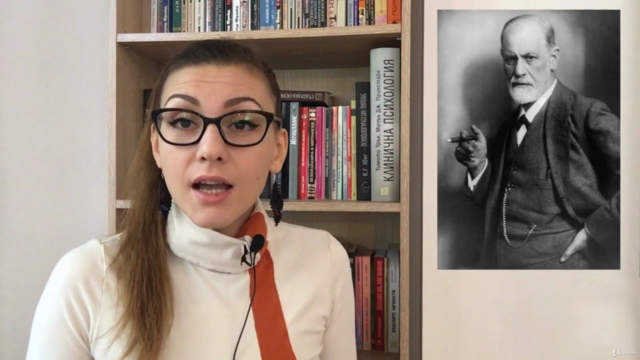
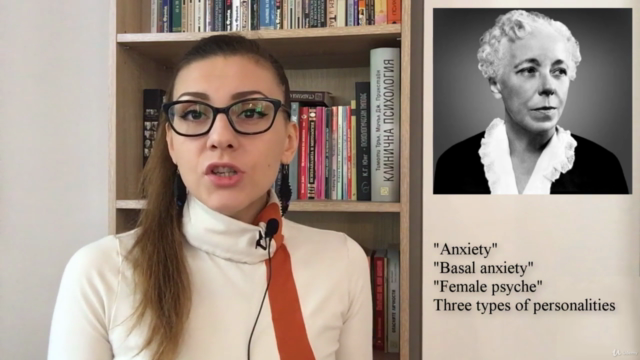
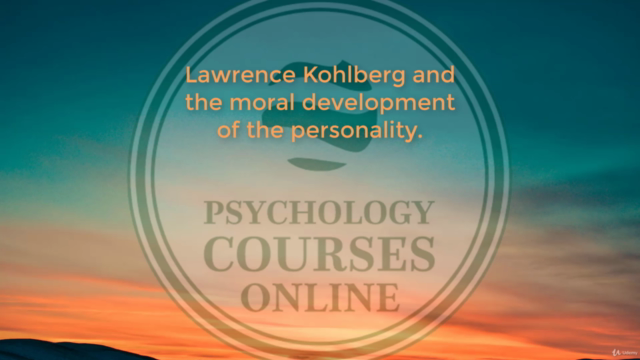
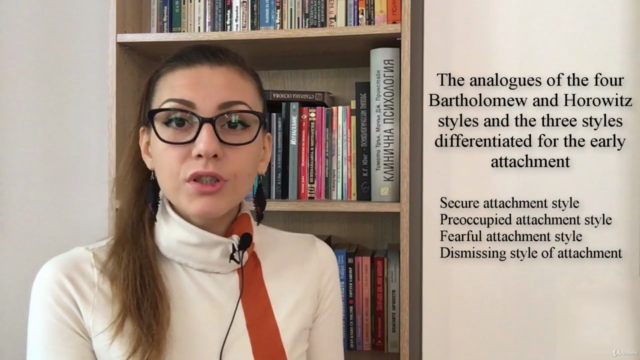
Our review
---
## Course Review Synthesis
### Overview
The course has received a global rating of 4.15, with all recent reviews being positive, indicating that the majority of students found value in the content and its application to real-life situations.
### Pros
- **Real-World Application**: Many learners reported that the lessons directly applied to their personal lives, helping them understand relationships, need satisfaction, behavior, and mindfulness.
- **Personal Growth**: Several reviews highlighted how the course helped them understand how to be present 'here and now,' leading to a sense of wonder and enlightenment.
- **Comprehensive Coverage**: The course was praised for covering almost everything related to its subject, providing insights, influences, and types of psychology.
- **Positive Impact**: Learners expressed that the course gave them an enlightenment about ensuring the pleasantness of their soul and body, indicating a profound impact on their well-being.
- **Well-Designed Content**: Some learners appreciated the succinct and well-designed content, which they found to be excellent and worthy of revisiting slowly for better comprehension.
- **Anticipation for Further Learning**: There is a demand for a more advanced level of the e-course, showing that students are eager to delve deeper into the subject matter.
- **Positive Feedback**: Positive reviews included expressions of gratitude and appreciation for the instructors' work and the course's design.
### Cons
- **Pace of Learning**: Some learners suggested not rushing through the content to ensure adequate thinking time, which is crucial for understanding complex topics.
- **Personalization and Examples Needed**: A few reviews indicated that the course could be more personalized and benefit from examples to aid in comprehension.
- **Accessibility Concerns**: One review mentioned difficulties with a foreign accent in the speech, which may have caused some confusion but overall found the course amazing.
- **Resource Availability**: Learners expected additional resources such as downloadable notes, which would have enhanced the learning experience.
- **Lecturer's Presentation Style**: Some feedback critiqued the lecturer for reading directly from a screen rather than explaining the content, leading to a less engaging experience. Comprehensiveness was also an issue, with some learners feeling that the subject matter was not sufficiently comprehensive.
### Additional Notes
- **Certificate Concerns**: One learner raised an issue regarding the signing and personalization of the course completion certificate, requesting a resolution via email.
- **Technical Aspects**: A few comments touched upon technical aspects such as the visibility of notes during lectures and the display of the lecturer's face on screen alongside the displayed notes.
### Conclusion
The course has been generally well-received, with many learners finding it both informative and personally enriching. However, there is room for improvement in terms of pacing, resource provision, and lecture presentation styles to enhance the learning experience further. The feedback suggests that with minor adjustments, this course could be even more effective in teaching psychodynamic psychology.
Charts
Price
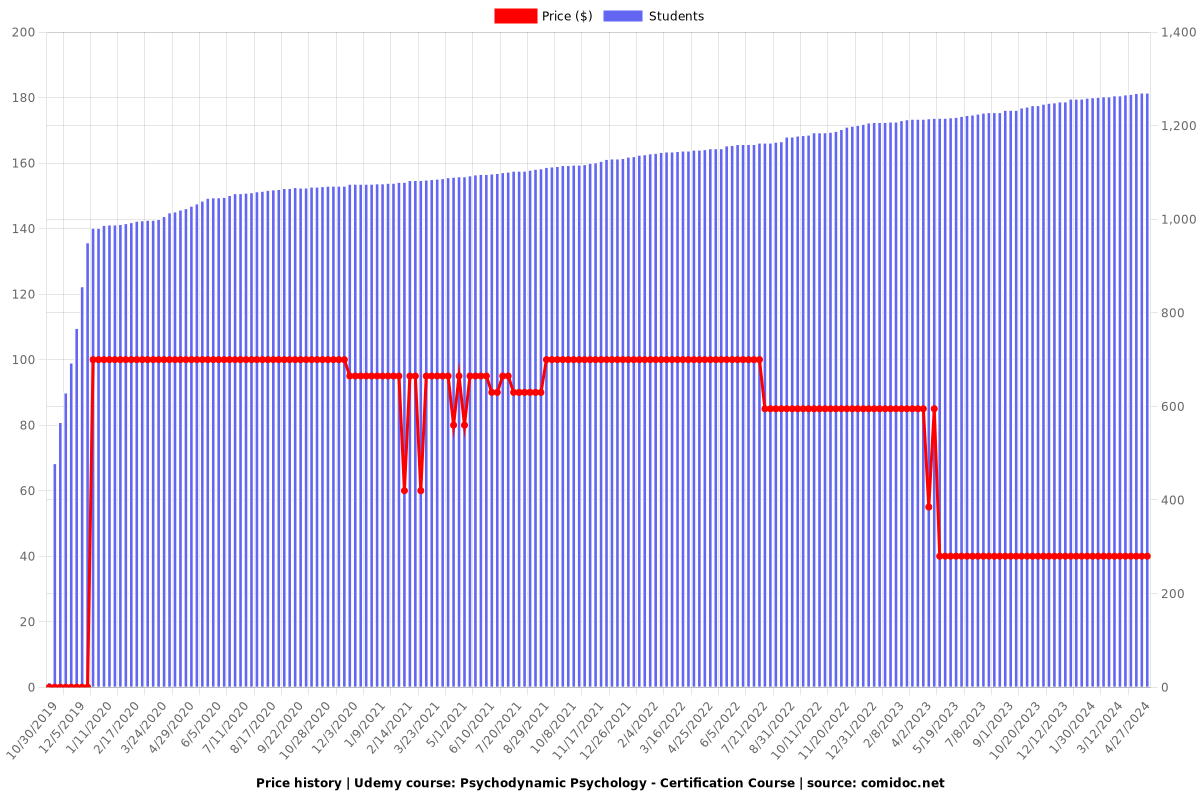
Rating
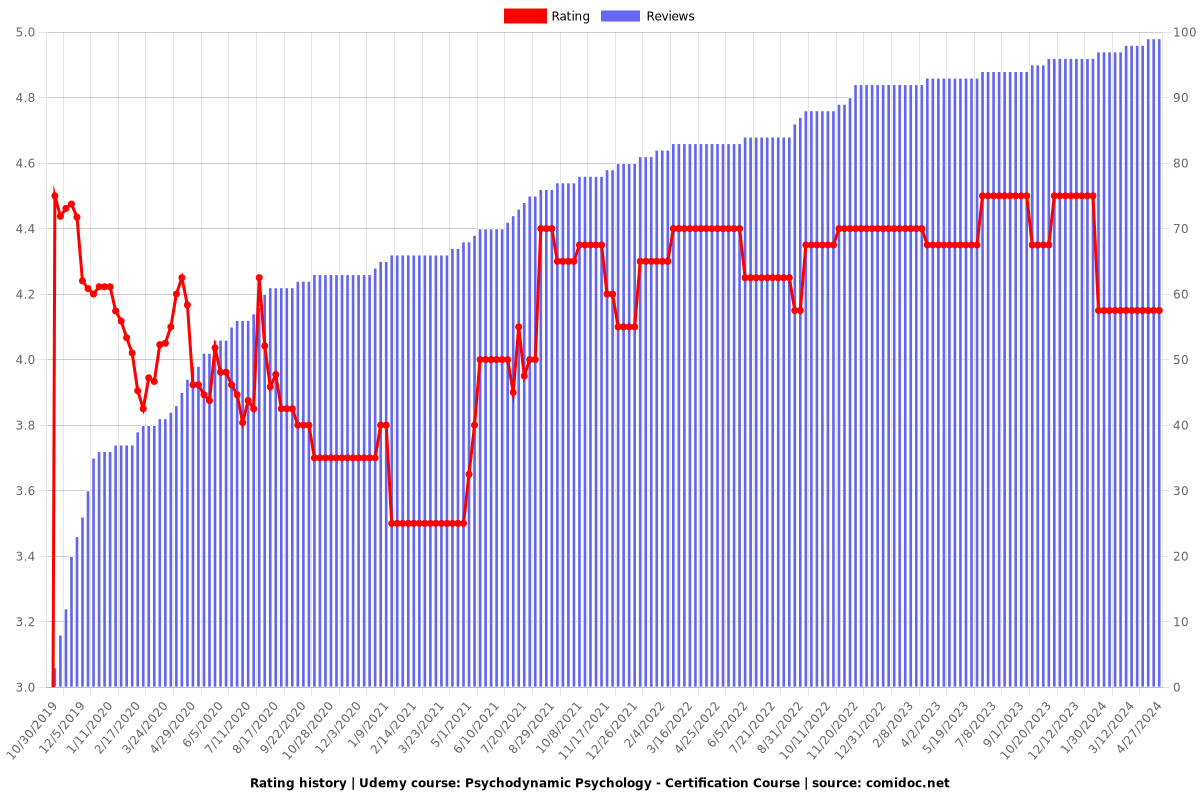
Enrollment distribution
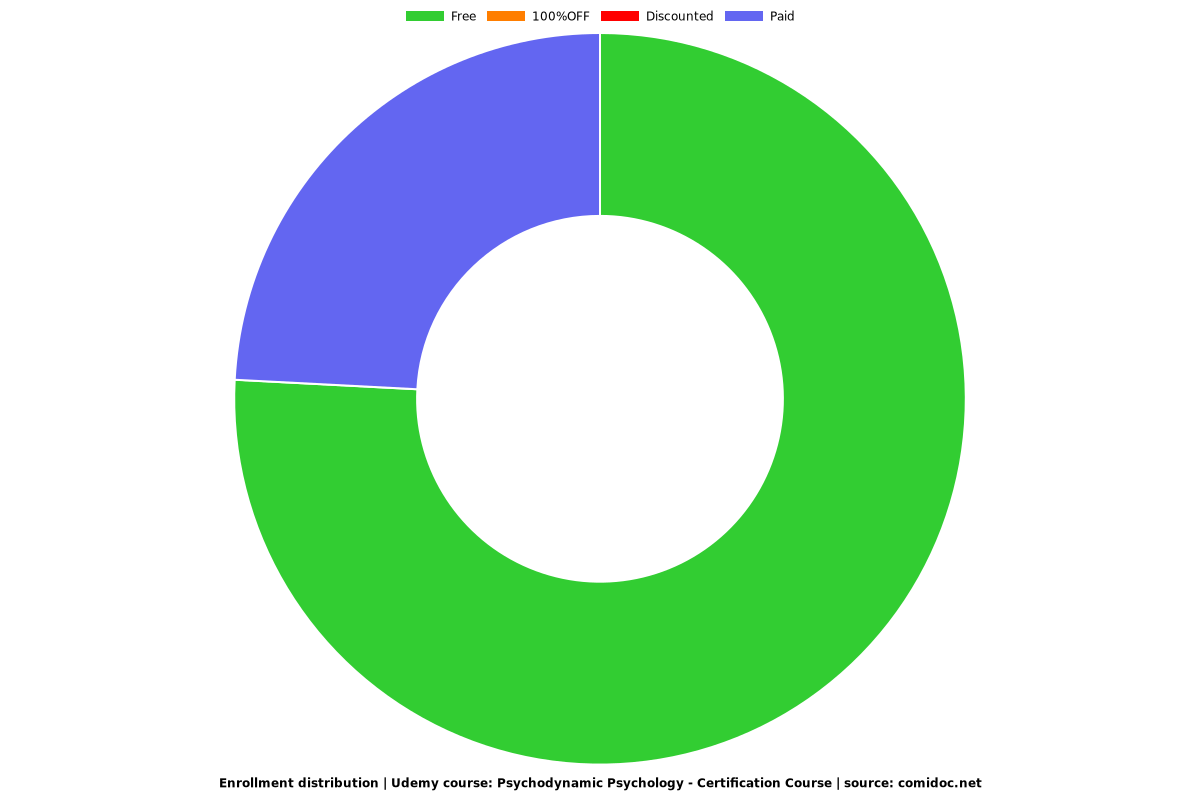
Related Topics
2432404
udemy ID
6/27/2019
course created date
10/30/2019
course indexed date
Bot
course submited by